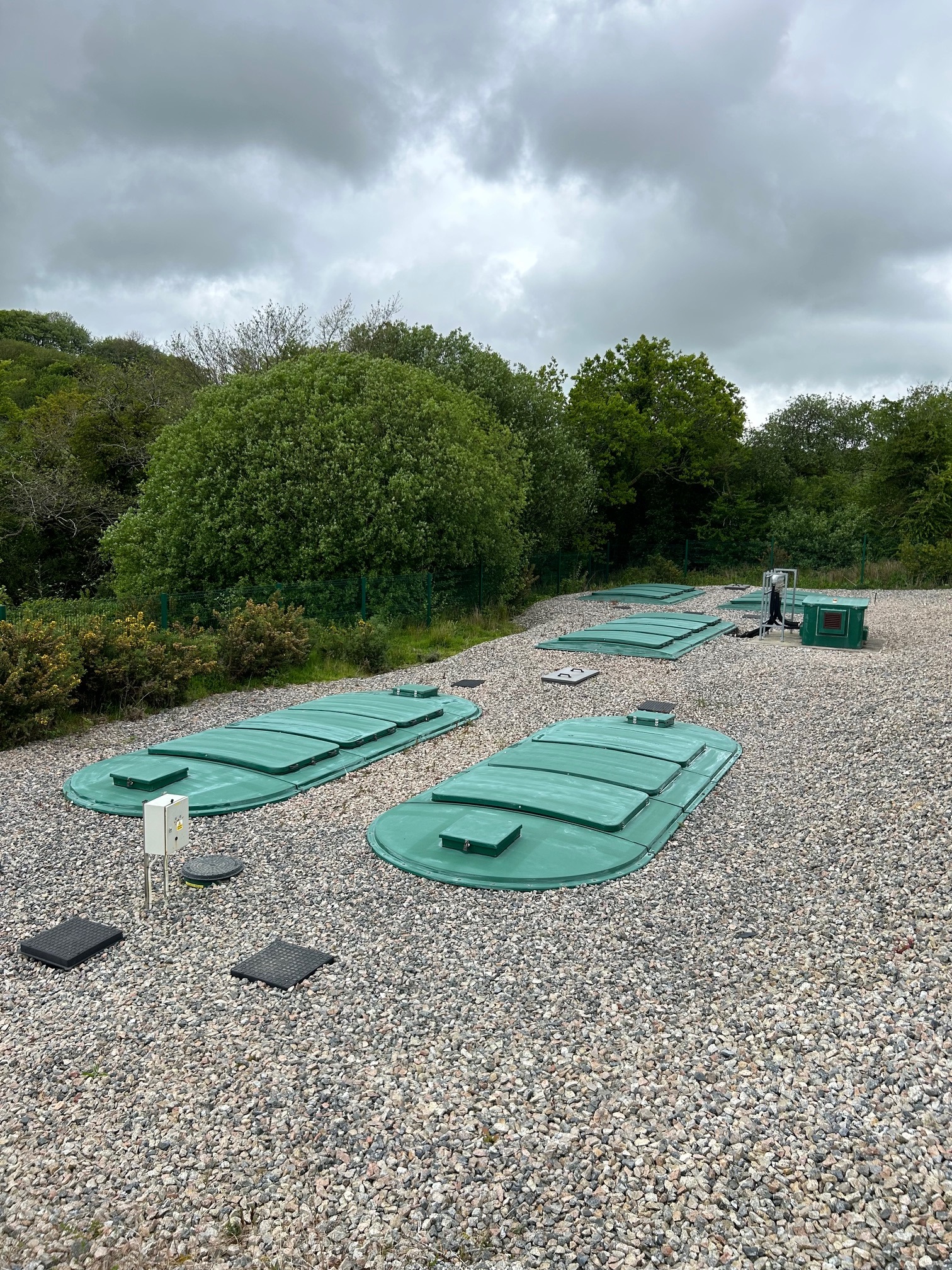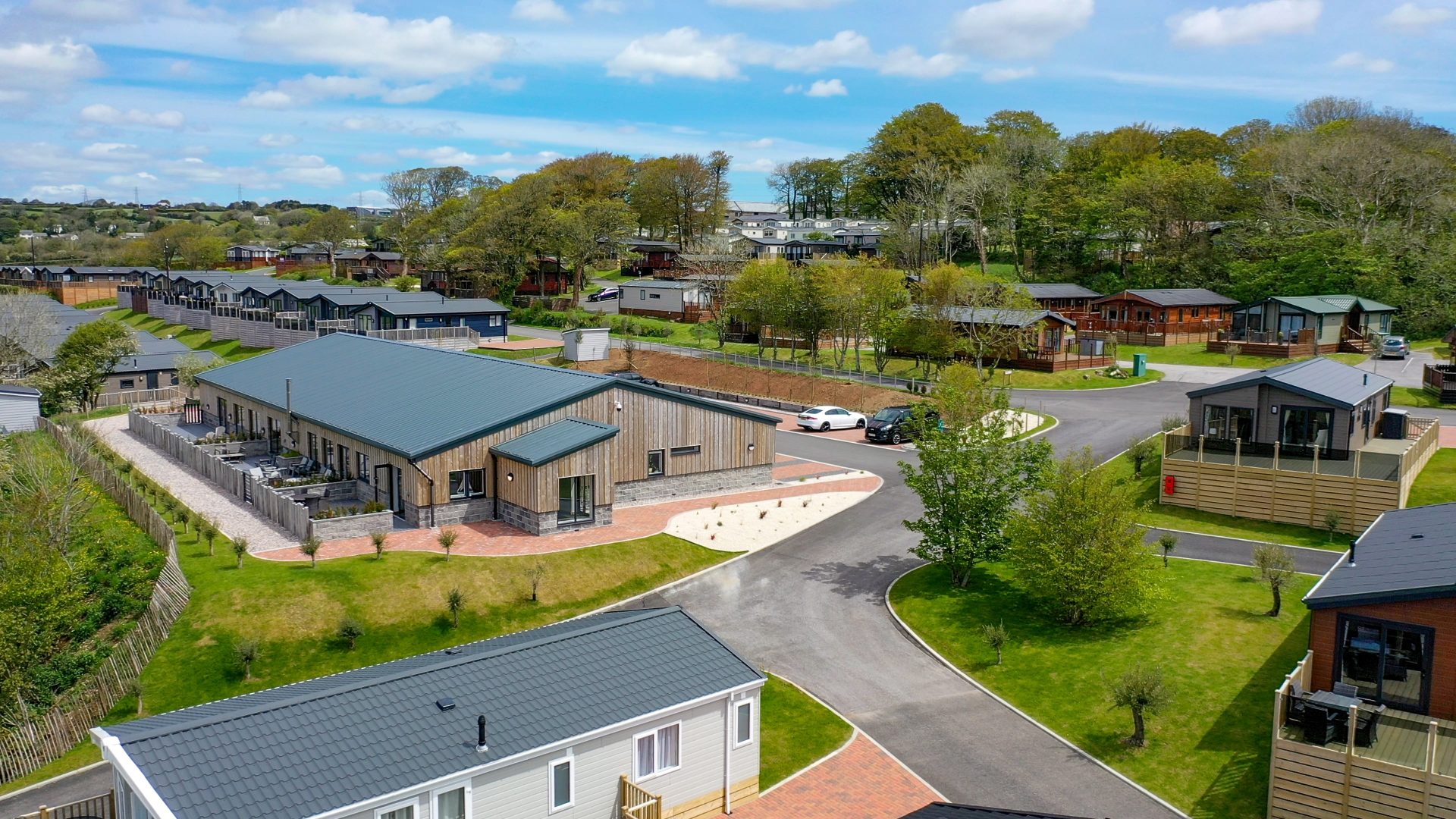Following a successful two-year trial of interval timers on packaged wastewater treatment plant blowers has resulted in an average 50% energy reduction at a site in Cornwall.
The partnership between WCS Environmental Engineering (WCSEE) and Juliots Well Lodge Retreat has set a precedent for ongoing design and energy-saving standards on the wastewater treatment specialist’s HiPAF – high-performance aeration filter – system.
Energy costs

The HiPAF packaged wastewater treatment system was installed at Juliots Well Lodge Retreat in Camelford, North Cornwall, in 2019 to custom design specifications and environmental consents. This included a stringent Environment Agency effluent discharge permit for biological oxygen demand, suspended solids, and ammonia.
The plant is sized for a population equivalent of 1,230 and consistently processes loads up to 181m3/day wastewater. While the HiPAF operation was highly effective throughout the year, retreat park managers found that rising energy prices meant bills were higher than expected, especially during the peak demand periods of summer and weekends.
Air blowers are an integral part of the HiPAF system, providing oxygen to the bacteria during the aerobic process. However, without timers installed, blowers typically operate 24/7, which can account for more than 90% of the energy used in a HiPAF.
While energy efficiency has always been a key design focus of the HiPAF system, the engineering team at WCSEE took the opportunity to work closely with Juliots Well to identify ways to further reduce energy consumption. This included gathering and analysing data to assess how seasonal variability affects wastewater flow rates into the HiPAF and how dissolved oxygen (DO) levels in the aerobic digestion tank affect the need for blower operation.
Analysis of the data helped in understanding how cost-effective timers placed on the blowers could be used to reduce energy consumption and bills.
Trial period
Over the two-year trial period, two timers were retrofitted on the HiPAF at Juliots Well, one on each blower alternating each week to ensure even wear. It is possible to start and stop the blowers up to ten times per hour, so the WCSEE team started with 15 minutes on-off intervals as a baseline.
When the blowers were off, DO levels in the aerobic digestion tank were measured to ensure that 5-6mg of DO per litre of effluent were maintained as a minimum level, as is required for efficient treatment and operation of the HiPAF.
By incrementally tweaking and extending the timers, it was possible to identify the optimal time period for the blowers to be off, while remaining within the DO limits.
By the end of the trial, it was confirmed that Juliots Well can now safely operate the HiPAF blowers at intervals of 10-minutes-on and 20-minutes-off to maintain minimum DO limits. This optimised solution has led to considerable energy savings while fully meeting the requirements of the Environment Agency discharge consent.
Rick Ackroyd, general manager at Juliots Well Lodge Retreat said:
“With energy costs rising steeply, we were looking for ways to reduce our carbon footprint and energy use across the site. WCSEE has been a dedicated partner in helping with that goal.
“We value their patience and determination in helping us find an effective solution, ensuring we have a robust and efficient wastewater treatment system with the lowest possible energy consumption, especially during peak periods.”
Setting a precedent
High energy prices and net zero carbon commitments mean energy-efficient wastewater treatment is an increasing concern for owners and operators of packaged systems. To meet rising expectations, blower timers pre-set to 15-minute intervals are now fitted to all WCSEE HiPAF wastewater treatment systems as standard, ensuring the most cost-effective, energy-efficient system possible, and forming part of WCSEE’s standard control philosophy.
The company’s experienced technicians can work closely with clients post-installation to further enhance the HiPAFs functionality, with timers already delivering efficiencies on multiple sites.
WCSEE technical director, Andrew Baird, said:
“By working in close collaboration with Juliots Well Lodge Retreat, we have been able to deliver the best value whole-life cost for the client as well as improving the design and operation of the HiPAF wastewater treatment plant.
“Given the rising cost of energy, and governments’ net zero ambitions, we look forward to working with our existing and future clients to rollout this energy-saving enhancement to our highly effective biological treatment technology.”



